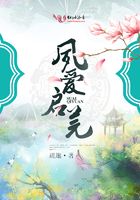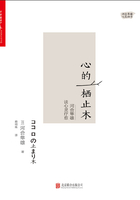Surprised at their want of success, they did not know what to make of it, till the soul or genius (oki) of the net appeared to them in the likeness of a tall well-built man, who said to them in a great passion, I have lost my wife and I cannot find one who has known no other man but me; that is why you do not succeed, and why you never will succeed till you give me satisfaction on this head. So the Algonquins held a council and resolved to appease the spirit of the net by marrying him to two such very young girls that he could have no ground of complaint on that score for the future. They did so, and the fishing turned out all that could be wished. The thing got wind among their neighbours the Hurons, and they adopted the custom. A share of the catch was always given to the families of the two girls who acted as brides of the net for the year.
The Oraons of Bengal worship the Earth as a goddess, and annually celebrate her marriage with the Sun-god Dharmeˉ at the time when the saˉl tree is in blossom. The ceremony is as follows. All bathe, then the men repair to the sacred grove (sarna), while the women assemble at the house of the village priest. After sacrificing some fowls to the Sun-god and the demon of the grove, the men eat and drink. The priest is then carried back to the village on the shoulders of a strong man. Near the village the women meet the men and wash their feet. With beating of drums and singing, dancing, and jumping, all proceed to the priest's house, which has been decorated with leaves and flowers. Then the usual form of marriage is performed between the priest and his wife, symbolising the supposed union between Sun and Earth.
After the ceremony all eat and drink and make merry; they dance and sing obscene songs, and finally indulge in the vilest orgies. The object is to move the mother earth to become fruitful. Thus the Sacred Marriage of the Sun and Earth, personated by the priest and his wife, is celebrated as a charm to ensure the fertility of the ground; and for the same purpose, on the principle of homoeopathic magic, the people indulge in licentious orgy.
It deserves to be remarked that the supernatural being to whom women are married is often a god or spirit of water. Thus Mukasa, the god of the Victoria Nyanza lake, who was propitiated by the Baganda every time they undertook a long voyage, had virgins provided for him to serve as his wives.
Like the Vestals they were bound to chastity, but unlike the Vestals they seem to have been often unfaithful. The custom lasted until Mwanga was converted to Christianity. The Akikuyu of British East Africa worship the snake of a certain river, and at intervals of several years they marry the snake-god to women, but especially to young girls. For this purpose huts are built by order of the medicine-men, who there consummate the sacred marriage with the credulous female devotees. If the girls do not repair to the huts of their own accord in sufficient numbers, they are seized and dragged thither to the embraces of the deity. The offspring of these mystic unions appears to be fathered on God (ngai); certainly there are children among the Akikuyu who pass for children of God. It is said that once, when the inhabitants of Cayeli in Buruan East Indian islandwere threatened with destruction by a swarm of crocodiles, they ascribed the misfortune to a passion which the prince of the crocodiles had conceived for a certain girl. Accordingly, they compelled the damsel's father to dress her in bridal array and deliver her over to the clutches of her crocodile lover.
A usage of the same sort is reported to have prevailed in the Maldive Islands before the conversion of the inhabitants to Islam. The famous Arab traveller Ibn Batutah has described the custom and the manner in which it came to an end. He was assured by several trustworthy natives, whose names he gives, that when the people of the islands were idolaters there appeared to them every month an evil spirit among the jinn, who came from across the sea in the likeness of a ship full of burning lamps. The wont of the inhabitants, as soon as they perceived him, was to take a young virgin, and, having adorned her, to lead her to a heathen temple that stood on the shore, with a window looking out to sea. There they left the damsel for the night, and when they came back in the morning they found her a maid no more, and dead. Every month they drew lots, and he upon whom the lot fell gave up his daughter to the jinnee of the sea. The last of the maidens thus offered to the demon was rescued by a pious Berber, who by reciting the Koran succeeded in driving the jinnee back into the sea.
Ibn Batutah's narrative of the demon lover and his mortal brides closely resembles a well-known type of folk-tale, of which versions have been found from Japan and Annam in the East to Senegambia, Scandinavia, and Scotland in the West. The story varies in details from people to people, but as commonly told it runs thus. A certain country is infested by a many-headed serpent, dragon, or other monster, which would destroy the whole people if a human victim, generally a virgin, were not delivered up to him periodically. Many victims have perished, and at last it has fallen to the lot of the king's own daughter to be sacrificed. She is exposed to the monster, but the hero of the tale, generally a young man of humble birth, interposes in her behalf, slays the monster, and receives the hand of the princess as his reward. In many of the tales the monster, who is sometimes described as a serpent, inhabits the water of a sea, a lake, or a fountain. In other versions he is a serpent or dragon who takes possession of the springs of water, and only allows the water to flow or the people to make use of it on condition of receiving a human victim.
It would probably be a mistake to dismiss all these tales as pure inventions of the story-teller. Rather we may suppose that they reflect a real custom of sacrificing girls or women to be the wives of waterspirits, who are very often conceived as great serpents or dragons.















